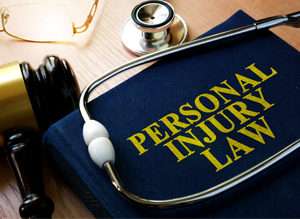Looking for a personal injury lawyer on Long Island that you can trust? At Falk and Klebanoff, you will be put in contact with dedicated legal representation. These lawyers represent personal injury clients who suffer from all types of injuries caused by an accident on Long Island.
It is important to determine the appropriate type of claim when it comes to personal injuries on Long Island. That is because each has its own standard of proof. When it comes to personal injury claims, there are three main categories: negligence, strict liability and intentional torts. Read more on the differences between these claims. For representation regarding a personal injury, turn to the Long Island law firm of Falk & Klebanoff for a lawyer you can trust. Learn more about why you may need a lawyer for your personal injury.
 Strict Liability
Strict LiabilityStrict liability, in many states, applies when you are injured by a defective product. In many cases, you can win a strict liability lawsuit without proving that the defendant was careless, reckless, or acting in an intentional manner. To win against a manufacturer or seller, you must show that:
An intentional tort is a willful act that causes injury, like an assault during a mugging. And the assault causes an injury. In most instances, an intentional tort is normally both a crime and a tort. However, the standard of proof is lower for a civil lawsuit than for criminal prosecution. What that means is that you may be able to successfully pursue a civil case against the defendant, even if they are acquitted of the crime.
The most common type of personal injury claim is a negligence claim. What defines negligence? Well, in a nutshell, the law considers an individual negligent when they fail to act with at least the same degree of responsibility that an ordinary person would reasonably use in a similar situation.
So, to be liable for negligence, a party must breach a duty of care owed to you, thereby causing you damages. A simple example is if a careless or intoxicated driver causes an accident that injures you. The driver is clearly negligent. Another common example is if a doctor injures you by performing a procedure that is inconsistent with established standards for physicians.
When it comes to representation, the extent of a defendant’s duty to you varies based on the given circumstances. It changes based on the parameters of the case at hand. What does that mean? Well, there is a difference in standards based on the present situation. While operating on a patient, a doctor is held to a professional standard of care. However, we hold that same doctor to an ordinary standard of care if they cause a car accident. There is a difference in circumstances that dictate the rest of the claim. As your Long Island personal injury lawyer, we are well-equipped to deal with these issues.
Gross negligence is a particularly extreme form of negligence and falls into a gray area between ordinary carelessness and intentional actions. This sort of negligence involves reckless conduct where the offender is aware of an extreme risk of harm but proceeds with the reckless conduct nonetheless. Take for example a driver. They can commit gross negligence by driving while intoxicated. So, a court may award higher damages for proving gross negligence. Of course, this depends on the given circumstances, which is why it is classified as a separate fault category.
Often, companies protect themselves against negligence by disclaiming liability. What does that mean exactly? Well, a company can have you sign a waiver of liability prior to doing business with them. So, in a way, you signed a contract that forgave some of the ensuing circumstances. However, a waiver of liability is unlikely to immunize a company against any gross negligence.
So, if you have suffered an injury that was someone else’s fault, the type of claim you can pursue will depend on the facts of your case. We can help! Contact us today for more information.
When you reach out to us, we can provide you with a free, no-obligation consultation. Get in touch with the best personal injury lawyer on Long Island!